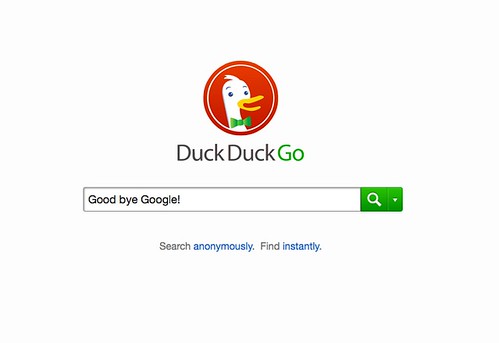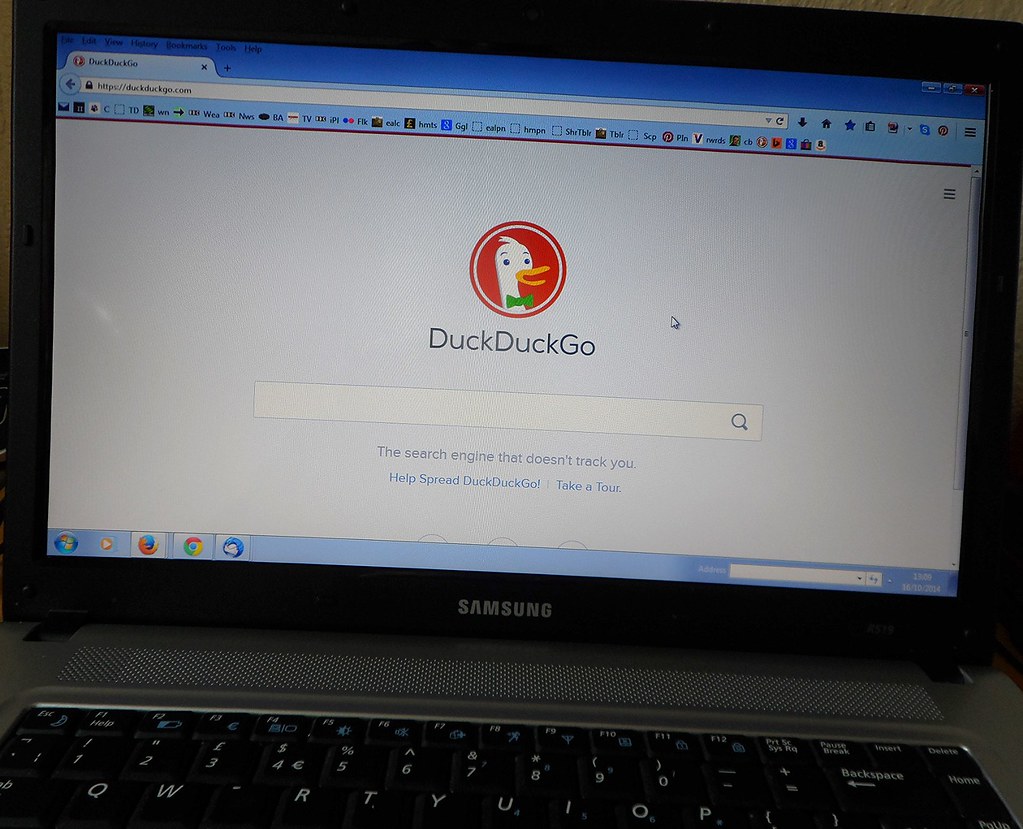
In an increasingly data-driven world where every click, query, and online interaction is meticulously cataloged, the concept of digital privacy has ascended from a niche concern to a mainstream imperative. As traditional search engines and web services continue to amass vast quantities of user data to fuel personalized experiences and targeted advertising, a quiet revolution has been brewing, championed by a company that dares to put user privacy above all else.
At the heart of this movement is DuckDuckGo, an American software company whose flagship product—a privacy-focused search engine—has steadily carved out a significant space in the competitive online arena. Founded on the principle that users deserve to browse the web without constant surveillance, DuckDuckGo has evolved into a comprehensive suite of privacy tools, including browser extensions and a dedicated web browser, all designed to shield individuals from the pervasive tracking mechanisms of the modern internet.
This article offers an in-depth exploration of DuckDuckGo’s remarkable journey, from its humble beginnings to its current standing as a formidable advocate for online anonymity. We will unpack its foundational vision, trace its trajectory of growth, dissect its core privacy features, and examine the innovative technologies it employs to deliver a truly private and unbiassed search experience. Prepare to discover how DuckDuckGo is actively reshaping our expectations for digital interactions.

1. **Founding and Early Vision**DuckDuckGo’s story began on February 29, 2008, when Gabriel Weinberg, an entrepreneur previously known for launching the now-defunct social network Names Database, officially launched the search engine from Valley Forge, Pennsylvania. Weinberg initially self-funded the venture, a testament to his conviction in the project’s potential. This early self-reliance underscored a grassroots approach that would come to define the company’s ethos.
By October 2011, DuckDuckGo garnered external backing, securing investments from Union Square Ventures and a cadre of angel investors. Brad Burnham, a partner at Union Square, articulated the strategic rationale behind their support, stating, “We invested in DuckDuckGo because we became convinced that it was not only possible to change the basis of competition in search, it was time to do it.” This statement highlighted a perceived void in the market for a search engine prioritizing different metrics than its competitors.
The unique and memorable name, DuckDuckGo, is a direct reference to the classic children’s game, “duck, duck, goose.” Weinberg himself clarified the origin, noting, “Really it just popped in my head one day and I just liked it. It is certainly influenced/derived from duck duck goose, but other than that there is no relation, e.g., a metaphor.” This whimsical yet distinct branding helped the search engine stand out from its more corporate-sounding rivals.
In its nascent stages, DuckDuckGo quickly captured attention within the tech community, earning a feature on TechCrunch’s Elevator Pitch Friday in 2008 and becoming a finalist in the 2008 BOSS Mashable Challenge. Recognizing the burgeoning public concern over online data, DuckDuckGo made a pivotal strategic decision in 2010 to explicitly use privacy as its primary differentiator. This move set the stage for its future growth and established its identity as a privacy-centric alternative.
Read more about: The 12 Smartest Business Moves That Propelled Reese Witherspoon’s Billion-Dollar Empire

2. **Growth and Mainstream Adoption**The 2010s marked a period of significant expansion and increasing visibility for DuckDuckGo. By May 2012, the search engine was attracting a respectable 1.5 million searches per day, demonstrating a growing appetite among users for its privacy-focused approach. Weinberg reported a revenue of US$115,000 in 2011, supported by a lean team of three employees and a small number of contractors, highlighting efficient operations.
The Washington Post, in a comprehensive profile published in November 2012, recognized DuckDuckGo’s burgeoning influence, noting that searches reached 45,000,000 per month by October of that year. The article provocatively concluded that Weinberg’s “non-ambitious goals make him a particularly odd and dangerous competitor online,” suggesting his model could disrupt larger players without direct confrontation if users gravitated toward its principles.
Crucially, DuckDuckGo began to see integration into major operating systems and web browsers, solidifying its presence as a viable search option. Early adopters included Trisquel, Linux Mint, and the Midori web browser, which switched to DuckDuckGo as their default. This trend continued with GNOME Web 3.10 adopting it as the default search engine on September 26, 2013, further broadening its reach within the open-source community.
A significant milestone arrived on September 18, 2014, when Apple announced at WWDC that DuckDuckGo would be included as an optional search engine in Safari for both iOS 8 and OS X Yosemite. This was followed by similar inclusions in Pale Moon (version 24.4.0) in May 2014 and Mozilla Firefox 33.1 in November 2014, making it accessible to millions more users. The Tor Project also made DuckDuckGo the default search engine for Tor Browser 6.0 on May 30, 2016, aligning perfectly with its privacy mission.
In July 2016, DuckDuckGo extended its partnership with Yahoo!, which brought new features like date filtering of results and additional site links. The company also collaborates with Bing, Yandex, and Wikipedia, emphasizing that it does not share user information with these partners, upholding its steadfast privacy policy. A notable development in December 2018 saw Google transfer ownership of the highly desirable domain name Duck.com to DuckDuckGo, further legitimizing its brand. By March 2019, Google itself added DuckDuckGo to the default search engine list in Chrome 73, signaling its mainstream acceptance.
Read more about: Workplace Evolution: 10 Core Practices Gen X Embraced, and How Digital Natives Are Crafting the Future of Work

3. **Evolution in the 2020s**The 2020s ushered in a new era of product development and user engagement for DuckDuckGo, extending its privacy protections beyond search alone. Building on its commitment to comprehensive online privacy, the company began offering browser extensions for popular web browsers such as Google Chrome and Safari starting in 2018. These extensions were designed to provide protections against web tracking and other privacy intrusions across all web browsing activities, not just DuckDuckGo searches.
Further solidifying its ecosystem, DuckDuckGo also launched its own dedicated web browser, the DuckDuckGo Private Browser, in 2018. This browser offers an integrated, privacy-first browsing experience, becoming a go-to choice for users seeking robust safeguards against tracking. The company continues to refine these tools, exemplified by its move in August 2022 to block Microsoft’s trackers, a significant step after previous limitations due to search syndication agreements.
In July 2021, DuckDuckGo introduced an innovative Email Protection feature, allowing users to claim an “@duck.com” email address. This service acts as a privacy intermediary, receiving emails and stripping them of data trackers before forwarding them to the user’s private email address. The feature initially launched in beta for users of the DuckDuckGo Private Browser on iOS and Android, offering another layer of defense against pervasive online surveillance.
The platform continued to demonstrate impressive growth in user adoption, handling an average of 102,704,358 daily searches as of March 2022. This figure underscores its increasing popularity and relevance. A new record was set on January 17, 2022, with an astounding 111,703,299 daily searches, reflecting a clear demand for privacy-centric services.
Beyond search and email, DuckDuckGo actively works to counter prevalent tracking technologies. In April 2022, the company announced its commitment to protect users from being tracked by Google’s Accelerated Mobile Pages (AMP) framework. Their approach ensures that when users load or share an AMP page from DuckDuckGo apps or extensions, the original publisher’s webpage is used instead of the Google AMP version, thus bypassing Google’s tracking mechanisms. This proactive stance further solidified its reputation among privacy advocates, leading to significant developments like Debian package maintainers switching the default search engine in Chromium to DuckDuckGo for privacy reasons in September 2022. Most recently, in April 2024, DuckDuckGo launched Privacy Pro, a paid subscription service encompassing a VPN, Personal Information Removal, and Identity Theft Restoration, initially available to browser users in the United States, expanding its offerings into a full suite of privacy solutions.
Read more about: Hold Up! 12 Electric Vehicles That Have Owners Wishing for a Do-Over

4. **Core Pillar: User Privacy**The fundamental tenet of DuckDuckGo’s design and operation is its unwavering commitment to user privacy. Unlike many of its competitors, DuckDuckGo explicitly states that it does not track its users, forming the bedrock of its appeal. This policy means that personal identifiers such as IP addresses or user agents are never stored, ensuring that searches remain confidential and user histories blank. This stark contrast to data-hungry models is a powerful draw for a privacy-conscious audience.
DuckDuckGo implements multiple layers of protection to safeguard user anonymity. For instance, it keeps favicons anonymous and ensures that user locations are never sent to DuckDuckGo servers, even when users allow a third party to collect their geolocations. These measures are critical in preventing the aggregation of data that could ultimately be used to identify or profile individuals.
The search engine offers robust, limited third-party tracking protection, a crucial defense against the ubiquitous web trackers deployed across the internet. This includes third-party cookie protection, CNAME cloaking protection, and limited device fingerprint protection. Furthermore, it incorporates link tracking removal, Google AMP replacement, and honors do-not-track requests, all working in concert to create a more private browsing environment.
The company articulates its philosophy clearly: “DuckDuckGo is different. The web service and the application protect your privacy by keeping records of searches confidential while maintaining blank histories of stored data with no data sharing with advertisers.” This means advertisements served on DuckDuckGo are based solely on the keywords of the search query, rather than on intrusive user profiles, eliminating the sensation of constant surveillance that plagues other platforms.
Beyond search, DuckDuckGo continually promotes encrypted connections, ensuring secure HTTPS access when websites permit it. This feature is vital for protecting sensitive information such as login credentials and personal data from interception by malicious actors. Its email protection system further extends this commitment by stripping tracking objects from emails, thereby preventing businesses from gleaning insights into your message-opening behavior or other personal metrics. Together, these features make DuckDuckGo a formidable shield against the prying eyes of the digital world.
5. **The Anatomy of Search Results**DuckDuckGo’s search results are a sophisticated compilation drawn from a diverse array of “over 400” sources, as stated by the company itself. This expansive network includes prominent partners such as Bing, Yahoo! Search BOSS, Wolfram Alpha, and Yandex, alongside data from its own proprietary web crawler, the DuckDuckBot. It is a critical distinction that, unlike many other search engines, DuckDuckGo specifically excludes results from Google.
This multi-source approach allows DuckDuckGo to provide comprehensive answers while maintaining its independence from dominant search algorithms. The company also integrates information from crowdsourced platforms like Wikipedia, leveraging this wealth of public knowledge to populate informative knowledge panel boxes that appear to the right of the search results, offering quick and relevant summaries.
However, the reliance on external APIs was notably highlighted during a Bing API outage in 2024, which caused DuckDuckGo to temporarily stop showing results. This incident underscored that Bing provides a substantial portion of DuckDuckGo’s underlying search data, illustrating the interconnectedness of modern search infrastructure even for privacy-focused alternatives.
Recognizing the varied technical capabilities of its user base, DuckDuckGo offers both HTML and lite versions of its search interface. These versions are specifically designed to cater to browsers that do not support JavaScript, ensuring accessibility and functionality for a broader range of devices and older systems without compromising core search capabilities.
DuckDuckGo has consistently refined the quality of its search results through deliberate editorial decisions. It proactively deletes search results for entities it deems “content mills,” citing examples like eHow, which publishes thousands of articles daily from paid freelance writers that Weinberg characterized as “low-quality content designed specifically to rank highly in Google’s search index.” Furthermore, the engine filters out pages with substantial advertising and down-ranks websites considered to have low journalistic standards, aiming to provide a cleaner, more authoritative search experience. Crucially, “DuckDuckGo delivers equal search results to all users through its platform to maintain an impartial search activity,” preventing the filter bubbles created by personalized results. This impartiality is highly valued by researchers seeking diverse perspectives and unprejudiced news reports.
Read more about: The Unseen Dinosaurs: Astonishing Fossils That Look Like They Died Yesterday

6. **Instant Answers and DuckDuckHack Community**A defining and highly practical feature of the DuckDuckGo search experience is its Instant Answers, designed to provide immediate, relevant information directly on the search results page. These Instant Answers are often referred to as “zeroclickinfo” because their primary intent is to deliver the information users are looking for without requiring them to click through to an external website, thereby streamlining the search process and enhancing efficiency.
These concise, direct answers are aggregated from a variety of sources, including third-party APIs and static data sources such as text files. This diverse data acquisition method ensures a broad spectrum of readily available information, from factual definitions to practical instructions. The beauty of Instant Answers lies in their ability to cater to quick queries, making DuckDuckGo an efficient tool for rapidly accessing facts.
The development and maintenance of Instant Answers are largely driven by a vibrant community of over 1,500 open-source contributors, collectively known as DuckDuckHack. This collaborative model harnesses the power of collective intelligence, allowing dedicated users to build, refine, and improve the quality and breadth of the Instant Answer database. As of July 2019, a remarkable 1,236 Instant Answers were actively integrated into the search engine.
The DuckDuckHack documentation delineates four distinct categories of Instant Answers, each differentiated by its data retrieval method. “Goodies” do not rely on third-party APIs, instead utilizing static data sources like text or JSON files. “Spices,” conversely, do retrieve data from third-party APIs. “Fatheads” represent key-value answers hosted on DuckDuckGo’s backend, functioning as triggers for specific Instant Answers. Finally, “Longtails” involve full-text queries to a DuckDuckGo database of articles, returning paragraphs or snippets with the matching sections highlighted, offering more detailed responses to complex questions.
In a significant development for the 2020s, DuckDuckGo introduced DuckAssist in March 2023. This advanced feature leverages large language models from leading AI developers like OpenAI and Anthropic to generate answers to users’ questions by scanning online encyclopedias such as Wikipedia and Britannica. This integration of AI brings a new level of sophistication to Instant Answers, enabling more nuanced and comprehensive responses directly within the search interface. While DuckDuckHack was placed on maintenance mode as of August 31, 2017, focusing primarily on bug fixes, the foundational contributions of its community continue to power many of these innovative features, including the robust Instant Answer system.

7. **Advanced Privacy: Tor Access Integration**DuckDuckGo’s commitment to user anonymity extends deeply into its technical infrastructure, notably through its integration with the Tor network. Back in August 2010, the company pioneered anonymous searching capabilities, establishing what it called an “exit enclave” specifically for its search engine traffic. This significant move enabled users to access DuckDuckGo through a “Tor hidden service,” commonly known as an onion service, thereby routing their search queries through a series of encrypted relays.
This strategic partnership with Tor was a direct manifestation of DuckDuckGo’s core privacy policy, allowing users to achieve end-to-end anonymity in their searching activities. Gabriel Weinberg, the founder, emphasized this alignment, stating, “I believe this fits right in line with our privacy policy. Using Tor and DDG, you can now be end to end anonymous with your searching. And if you use our encrypted homepage, you can be end to end encrypted as well.” This feature was a powerful statement in an era where digital surveillance was just beginning to draw widespread concern.
Initially, DuckDuckGo’s v2 onion service was accessible via a specific `.onion` address, facilitating truly private browsing for those who prioritized it most. Over time, as technology evolved, DuckDuckGo continued to refine its Tor integration. In July 2021, the company introduced a new v3 onion service, updating its address to leverage the latest advancements in Tor’s privacy and security protocols, reaffirming its dedication to providing state-of-the-art anonymity for its user base.
Read more about: Unleash Your Inner Executive: Jackie Gleason’s Custom 1969 Lincoln Continental Limousine Hits the Auction Block!

8. **Beyond Search: The Utility of Bangs**While DuckDuckGo is primarily known for its privacy-focused search, its utility extends far beyond a traditional search bar, thanks to an ingenious feature known as “!Bang” keywords. These powerful shortcuts empower users to search directly on specific third-party websites without first navigating to those sites. It’s a remarkably efficient tool, allowing instant access to a site’s internal search engine by simply prefixing a search query with its corresponding “bang.”
Imagine wanting to quickly find a product on Amazon, an article on Wikipedia, or a video on YouTube. Instead of going to amazon.com and then searching, a user can simply type “!a [product name]” into DuckDuckGo’s search bar, and they will be instantly redirected to the Amazon search results for that product. This feature transforms DuckDuckGo into a powerful launchpad for focused, site-specific inquiries, saving valuable time and reducing unnecessary navigation.
The sheer scale of “!Bangs” is impressive; as of August 2020, there were an astonishing 13,564 “bangs” available for a diverse range of internet sites. This vast collection underscores the community-driven nature that often defines DuckDuckGo’s development, providing a testament to its flexibility and user-centric design. It’s a testament to the idea that a search engine can be both a privacy safeguard and a powerful productivity tool.
However, the “bangs” ecosystem is not static. In December 2018, approximately 2,000 “bangs” were removed from the platform. This was a strategic decision, driven by various factors including the removal of broken links and, more significantly, the deletion of “bangs” for pirated content sites. This move was made for liability reasons, reflecting DuckDuckGo’s ongoing efforts to balance comprehensive utility with responsible platform management.

9. **A Unique Business Model: Privacy Without Compromise**DuckDuckGo operates on a business model that stands in stark contrast to the data-driven advertising behemoths of the internet. Its primary revenue streams are generated through serving advertisements and affiliate programs, but with a crucial distinction: these revenue methods never compromise user privacy. Unlike other search engines that build extensive user profiles from search histories, browsing habits, and personal data to deliver targeted ads, DuckDuckGo’s approach is fundamentally different.
The advertisements displayed on DuckDuckGo are derived exclusively from the keywords and terms of the current search query. This means if you search for “running shoes,” you’ll see ads for running shoes, but these ads are not influenced by your past searches, your location, or any other personal identifiers. This contextual advertising model ensures that users encounter relevant ads without the unsettling sensation of constant surveillance or the creation of a digital dossier.
In April 2024, DuckDuckGo expanded its revenue streams with the introduction of Privacy Pro, a paid subscription service. This offering, initially available to browser users in the United States, includes a VPN, Personal Information Removal, and Identity Theft Restoration. This diversification demonstrates an evolution in their business strategy, moving towards a direct-to-consumer privacy service model, offering enhanced protection for a subscription fee, further aligning with their core mission of safeguarding user data.
Beyond its direct commercial activities, DuckDuckGo also champions a philosophy of corporate social responsibility through charitable giving. The company actively supports organizations dedicated to improving privacy and competition within the digital landscape. In 2021 alone, DuckDuckGo donated US$1 million to these causes, contributing to a decade-long total of $3,650,000. Major recipients in 2021 included the Center for Information Technology Policy, the Electronic Frontier Foundation, European Digital Rights (EDRi), and The Markup, underscoring its commitment to fostering a more private and equitable internet for all.
Read more about: You Won’t Believe What’s Inside: 13 Wildly Unique Custom Features Making Touring Musicians’ Luxury Vans Insane!
10. **The Open-Source Philosophy: Community-Driven Innovation**At its heart, DuckDuckGo embraces a hybrid approach to its software development, combining proprietary core elements with a significant commitment to free and open-source software (FOSS). While the underlying core of the search engine remains proprietary, a substantial portion of its source code is freely available and hosted on GitHub under the Apache 2.0 License. This transparency fosters trust and allows external developers to scrutinize and contribute to specific components of the platform.
A prime example of this open-source philosophy was the now-retired DuckDuckHack, a sister site dedicated to organizing open-source contributions and community projects. This platform was instrumental in the development of many features, particularly the Instant Answers system. The search engine’s Instant Answers are, in fact, open-source and openly maintained on GitHub, allowing anyone to view the source code, suggest improvements, and contribute to their functionality.
This community-driven model, powered by over 1,500 open-source contributors, has been a critical factor in DuckDuckGo’s ability to innovate and expand its offerings rapidly. Even though DuckDuckHack transitioned into maintenance mode as of August 31, 2017, focusing primarily on bug fixes, the foundational contributions and collaborative spirit it fostered continue to underpin many of DuckDuckGo’s advanced features, ensuring that the platform remains robust and responsive to user needs.
The decision to open-source select components aligns perfectly with DuckDuckGo’s overarching mission. By allowing the community to inspect and contribute, it builds confidence in the system’s integrity and demonstrates a commitment to transparency that is often lacking in the proprietary world of big tech. It empowers users and developers alike, creating a sense of shared ownership in the pursuit of online privacy.

11. **Reception and Critical Acclaim: A Growing Endorsement**DuckDuckGo’s unique value proposition, particularly its staunch stance on privacy, has garnered significant positive reception and critical acclaim from various corners of the tech world and beyond. Early on, in June 2011, Harry McCracken of Time magazine lauded DuckDuckGo, drawing an evocative comparison to his favorite hamburger restaurant, In-N-Out Burger. He praised its stripped-down, focused approach, remarking, “It feels a lot like early Google, with a stripped-down home page… It just offers core Web search—mostly the ‘ten blue links’ approach that’s still really useful… It all feels meaty and straightforward and filler-free…”
McCracken’s endorsement extended to including DuckDuckGo in Time’s prestigious list of “50 Best Websites of 2011,” a clear indication of its emerging significance. Thom Holwerda of OSNews further championed the search engine, specifically commending its privacy features and efficient site-specific shortcuts, while simultaneously critiquing Google for its extensive tracking practices and the associated risks of data subpoenas. This commentary highlighted the clear market differentiation DuckDuckGo was establishing.
The increasing prominence of DuckDuckGo was undeniably recognized by the industry giants it sought to challenge. In 2012, Google itself, facing accusations of monopoly, identified DuckDuckGo as a legitimate competitor, a nod that Gabriel Weinberg reportedly found “pleased and entertained.” More recently, high-profile figures have openly expressed their preference for the privacy-centric search engine. Notably, in November 2019, Twitter CEO Jack Dorsey publicly endorsed DuckDuckGo, stating, “I love @DuckDuckGo. My default search engine for a while now. The app is even better!”
Beyond the tech and business elite, DuckDuckGo has also found an unexpected endorsement from conservative political commentators like Ben Shapiro and Dan Bongino. This diverse array of support, from tech journalists and industry leaders to political figures, underscores the broad appeal of its core promise: a commitment to user privacy in an increasingly data-hungry digital landscape. The bare-bones approach cited in early reviews has evolved, with DuckDuckGo now featuring auto-completion, instant results, and news tabs, demonstrating its growth while retaining its foundational principles.
Read more about: From Disney Darling to Dark Siren: The Unprecedented Evolution of Jenna Ortega, Gen Z’s Reigning Scream Queen

12. **Navigating Controversies and Traffic Dynamics: A Complex Trajectory**Despite its privacy-centric mission, DuckDuckGo has not been immune to controversies, particularly concerning content moderation and its evolving policies. In March 2022, in the wake of the Russian invasion of Ukraine, DuckDuckGo paused its partnership with Yandex Search. More notably, founder Gabriel Weinberg tweeted that DuckDuckGo would “down-rank sites associated with Russian disinformation,” a decision that sparked criticism from some users who viewed it as censorship and a deviation from the search engine’s stated commitment to “unbiased search.”
DuckDuckGo defended this stance, clarifying that “The primary utility of a search engine is to provide access to accurate information. Disinformation sites that deliberately put out false information to intentionally mislead people directly cut against that utility.” This incident highlighted the delicate balance between providing unfiltered access and ensuring informational integrity, a challenge faced by all digital platforms. Further controversy arose in April 2022 when reports suggested DuckDuckGo had blocked search results for certain major pirating websites, a claim the company later clarified, stating that such sites were not removed when searched by name or address, and that previous “site:” query issues had been fixed.
A significant privacy-related controversy emerged in May 2022, when a security researcher found that DuckDuckGo Private Browser allowed Microsoft’s trackers on non-DuckDuckGo websites, unlike its blocking of Google and Facebook trackers. Weinberg initially attributed this to a “Microsoft search syndication agreement,” which drew considerable backlash. However, in August 2022, DuckDuckGo announced it had begun blocking Microsoft’s trackers, stating the prior policy no longer applied, demonstrating responsiveness to user concerns and its ongoing commitment to comprehensive privacy. Today, DuckDuckGo continues to open articles through MSN, similar to how Google utilizes AMP.
These controversies, while challenging, have occurred amidst a backdrop of fluctuating but generally upward traffic trends. In June 2013, following the exposure of NSA surveillance programs by Edward Snowden, DuckDuckGo experienced a significant surge, reaching three million daily direct searches, up from 1.8 million the previous month. This led some to link its growth directly to increased privacy awareness. While some skeptics like Danny Sullivan argued “No One Cares About ‘Private’ Search,” others pointed to a lack of widespread awareness of DuckDuckGo as a factor.
The search engine continued its impressive ascent, hitting 4 million searches per day in September 2013, 10 million in June 2015, and 20 million by November 2017. January 2019 marked a milestone with 1 billion monthly searches, and November of the same year saw 50 million searches daily. Although 2022 saw some stagnation and a slight decline, with the traffic stats page eventually removed, DuckDuckGo still handled over 102 million daily searches on average as of March 2022, and set a record of over 111 million daily searches on January 17, 2022. The majority of its global traffic, approximately 56.23%, still originates from the United States, cementing its significant presence in the privacy-conscious digital landscape. In December 2024, DuckDuckGo further criticized Google’s proposed antitrust remedies, asserting they would “maintain the status quo” rather than foster genuine competition, continuing its role as an advocate for fair market access.
As we conclude our comprehensive journey through the world of DuckDuckGo, it’s clear that this isn’t just another search engine; it’s a profound statement in the ongoing debate about digital autonomy. From its very inception, rooted in the simple yet powerful idea that online privacy is a fundamental right, DuckDuckGo has consistently challenged the established norms of the internet. It has demonstrated that a viable, robust, and highly functional alternative exists for those who refuse to trade their personal data for convenience.
Through its unwavering commitment to user anonymity, innovative features like Instant Answers and Bangs, and a business model that truly aligns with user interests, DuckDuckGo has not only carved out a significant niche but has also significantly influenced the broader tech landscape. It has forced conversations, pushed industry giants to reconsider their practices, and provided a sanctuary for millions seeking refuge from pervasive tracking.
While its path has included its share of challenges and controversies, each step has ultimately refined its mission and solidified its resolve. DuckDuckGo continues to evolve, integrating cutting-edge AI, expanding its suite of privacy tools, and advocating for genuine competition. Its story serves as a powerful reminder that in the vast, often opaque, digital realm, there are still champions fighting for a more open, transparent, and privacy-respecting future for us all. It’s a future where your online presence remains truly your own, and that, in an increasingly connected world, is perhaps its most impactful legacy.





